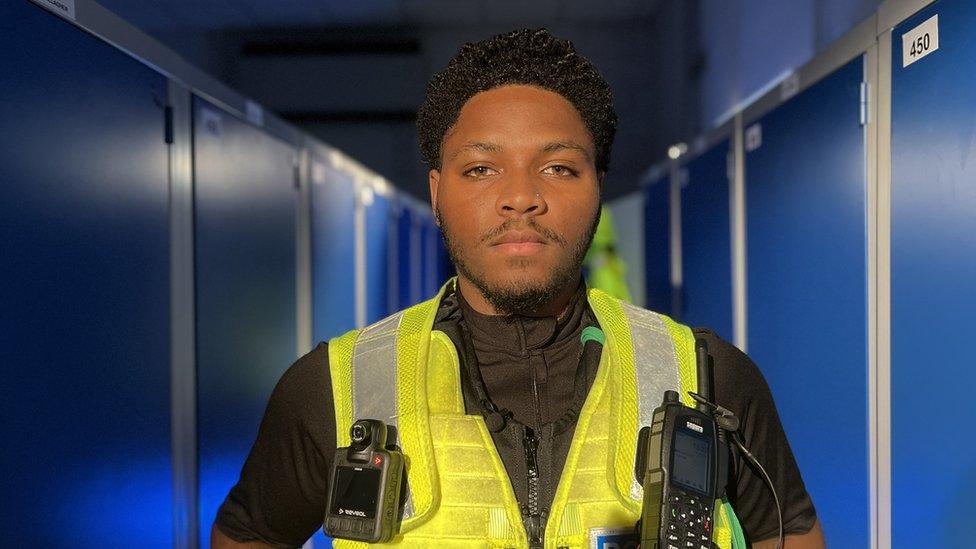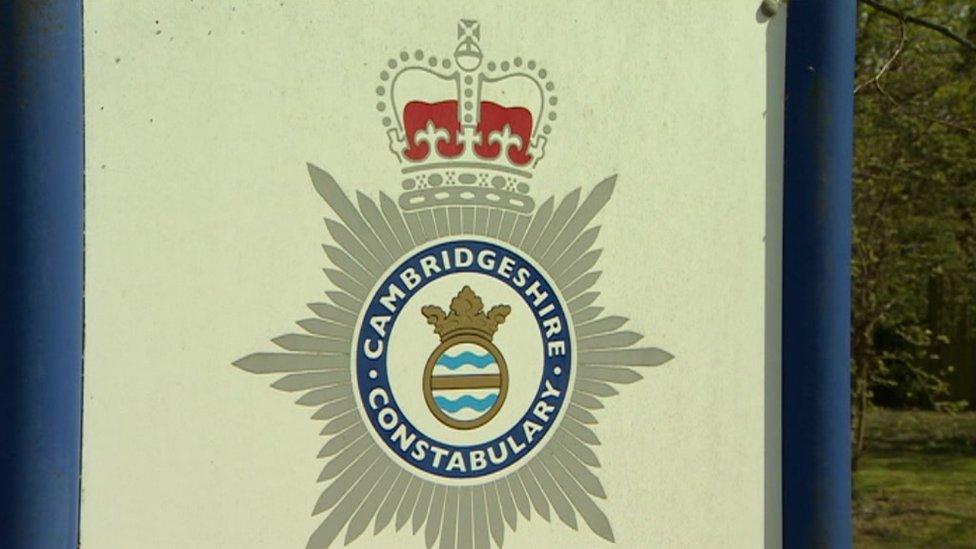Police to collect rape victim feedback in bid to improve
- Published

Cambridgeshire Police wants to change its focus on rape and sexual assault investigations to improve detection rates
A police force hopes to improve outcomes of rape and sexual assault investigations by seeking feedback from victims about their experiences of reporting offences.
Cambridgeshire Police will also "focus on the behaviour of the suspect" and "challenge victim-blaming language".
All forces have been asked to transform the way they investigate sex offences as part of Operation Soteria, external.
The government-funded scheme for change was launched earlier this year.
Cambridgeshire Police, which also serves Peterborough, launched Project Eleos in response, which it said meant taking a "trauma-informed approach" to speaking to victims and putting them "at the heart" of its investigations.
A Police and Crime Commissioner report on the county police's response, external to Operation Soteria said that, over the past year, the county had recorded the highest percentage of adult rape convictions in the country, at 77.8%.
But detection rates remained extremely low, in Cambridgeshire and nationally.
The report found "the rape detection rate in September was 8% and the rolling average as of 6 November is 6.2%".
"This is an improving position but still a cause of concern amongst criminal justice partners and the public," the report continued.
"The number of live rape investigations now sits at under 300 (from a high of 438) - the lowest for several years."
According to the Local Democracy Reporting Service, the force said new technology had allowed it to improve its "digital forensics".
It means victims' phones can be returned to them more quickly after being taken in for evidence-gathering.
The force was also improving its use of restraining orders to manage potential risks from perpetrators.
Another possible part of the operation, currently at an early stage, involved training people who work as part of the "night-time economy" - such as bouncers and taxi drivers - to spot the signs of predatory behaviour.

Follow East of England news on Facebook, external, Instagram, external and X, external. Got a story? Email eastofenglandnews@bbc.co.uk, external or WhatsApp us on 0800 169 1830.
Related topics
- Published31 October 2023

- Published26 June 2023

- Published21 July 2022
